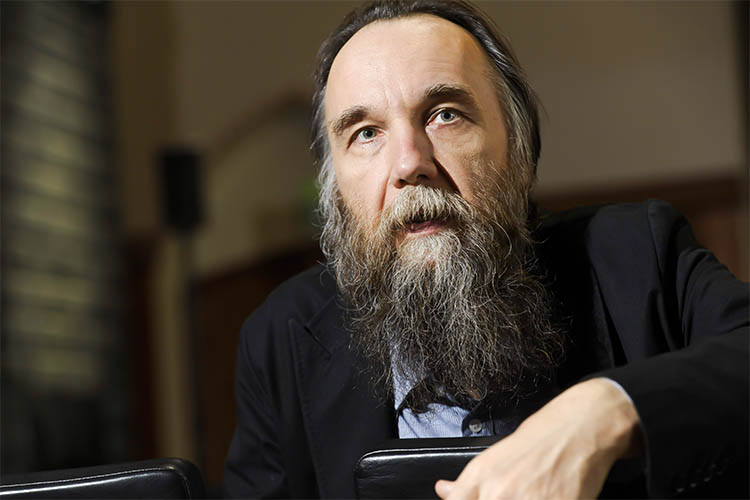Russian Foreign Policy: Eurasianism, Fourth Political Theory of Alexander Dugin
Alwaght- Eurasianism is one of the most important theories in Russian foreign policies that seems to have had significant impacts on the Kremlin's policies over the last few years. Emphasizing the distinct identity of Russia from the West, this theory insists that Moscow must take positions independently in the international arena. However, the Eurasianism holds that Russia can have relationship and alliance with the regional powers, including Iran. Alexander Dugin, known as the mastermind behind the Kremlin's policies and also "the wisdom of Putin", is one of the most distinguished thinkers of Russia and the founder of the intellectual current of neo-Eurasianism and also one of the fierce critics of ‘globalization’ in Russia. He believes that Russia should have an influential role in world politics and should assume the leadership of the anti-liberal democracy. That is why the US Treasury has imposed sanctions against him. In this report we are going to learn more about this philosopher, theorist and influential Russian political scientist and his political theories.
Alexander Gelyevich Dugin was born in January 1962 in Moscow into a family of a colonel-general. His father was a senior officer of the Soviet military intelligence, and on his father’s recommendation Alexander Dugin chose to work in KGB. Thanks to his access to documents that few people even knew of their existence, he studied about fascism, Eurasianism and did some researches on religions and also developed some theories about them. After the collapse of the USSR, Alexander Dugin played a significant role in founding a party and publishing several journals, and this way pursued his political activities. He helped to write the political program for the newly refunded Communist Party of the Russian Federation under the leadership of Gennady Zyuganov who was also a communist politician. The outcome of this program had mainly a nationalist tone rather than a Marxist one.
Eurasianism and neo-Eurasianism
Dugin believes that Russia culturally belongs to the East and as a leader, it should stand against the unipolar Western-American world. By Eurasia, he meant the Greater Russia which may have some allies, including Iran, Turkey, China, India and some countries in Eastern Europe. In his definition of Eurasianism he argues that Eurasianism is a political philosophy with three levels: external, middle and inner. In the external level, this theory consists of a multipolar world, i.e., there are several global centers for decision-making, and one of them is Eurasian one.” By Eurasia he means Russia and the former Soviet countries.
Alexander Dugin continues: "Eurasianism in the mid-level believes in convergence of the former Soviet Union countries despite creating a transnational model, namely the formation of independent states. Eurasianism theory at the level of domestic politics needs to determine the political structure of the society with regard to the rights of citizens on the basis of some parts of liberal and nationalist model. Eurasianism philosophy is based on these three levels, in which only one type of foreign policy is developed, and it is independent of globalization, unipolar world, nationalism, imperialism and liberalism. After all Eurasianism is generally a unique model of foreign policy.
The fourth political theory
In his book titled “the fourth political theory”, Dugin tried to theorize his own version of neo- Eurasianism. In this book, which was published in 2009 in Russia, he argues: "the twentieth century has ended and now we are just beginning to understand that the twentieth century was the century of ideologies."
Explaining the meaning of ‘the fourth political theory’, he mentions three current and present ideologies of the twentieth century: Fascism, Communism and Liberalism. Dugin goes on to explains that since the day fascism and Communism were defeated and joined the history, it is the liberalism which goes on unrivaled and even contends that it is not only an ideology along with other ideologies, but also one of the natural elements of human life. According to Dugin, with the collapse of the Soviet Union, it became clear that the fate of mankind and the "end of history" have nothing to do with Marxism, but it seemed to have the liberalism form, which Francis Fukuyama, the US philosopher had rushed to notify the humanity about, through announcing the "end of history" and the absolute and permanent triumph of the free market, liberalism, bourgeois democracy and the United States.
Alexander Dugin, in his book seeks to put forward a fourth theory i.e., neo-Eurasianism as opposed to liberalism that is now domineering. Dugin also wishes to introduce the fourth policy as an alternative, and inclusive of former rivals of liberalism and Atlanticism and, in fact, a combination of illiberal currents, first in Russia and then in the world.



























